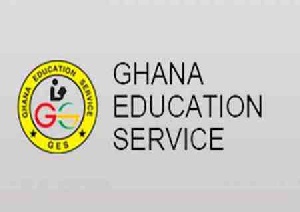Mr Jacob A. M. Kor, the acting Director General of the Ghana Education Service (GES) has directed that morning devotion in schools should be made compulsory for all category of students.
He said morning devotion is a place and time where major announcements are made and every student must be present to know the concerns of teachers or the school authorities.
Mr Kor said this in a speech read for him by Mr Michael Kofi Inkoom, Director of Senior High Schools, at the opening of a two day stakeholder’s forum on peace organised by the Western Regional Peace Council.
His topic was: “The need for religious tolerance in schools,’ and stakeholders at the event deliberated on the sustenance of peace and the prevention of uncomplimentary utterances and actions that could cause conflict.
“On the issue of morning devotion, as raised by some students during a demonstration in the western region some time ago, my humble view is that it should be made compulsory for every student”, Mr Kor said.
He said morning devotion is not only the beginning of classes but also it is used to check lateness.
For Islamic students, the acting DG suggested that a place be created for their worship, warning that failure to attend such a function could attract sanctions.
“Muslims in Christian institutions should be allowed to offer their prayers as they should and vice versa”, he said, adding that, Ghana’s constitution allows for religious pluralism and that has to be adhered to by all.
Mr Kor advised against any intimidation of minority religious groups in a given school since that defeats the purpose of education for all in the country.
On the Hijab, an attire of female Muslims, Mr Kor said if the school does not recognize it as part of their uniform, then students should refrain from wearing it.
“However, the hijab can be worn when it is time for prayers and could be worn in Islamic schools as uniform where it is accepted.
“We are making this argument based on the fact that apart from the constitution and other institutions, like the National Peace Council, advocating for religious tolerance among us, the various religions in the world advocate for respect for each other’s religions.”
Mr Kor said the GES aims at providing quality education to all students regardless of their religion, sex, tribe, and creed, adding that, though religious activities are encouraged, its presence must not be to the detriment of normal academic work.
He said to ensure harmonious atmosphere in the schools, heads must promote inter-religious peace talks among all religious groups to exchange ideas on practices of various religions.
The move, he said, would help students understand each other and help promote tolerance in schools, so that students are not compelled to attend programmes against their wishes.
Mr George Amoh, Director, Conflict Resolution and Management, said the National Peace Council has begun a series of stakeholders consultation, based on reported discrimination and criticism experienced by some Muslims at public organizations and schools.
He said this would enable the nation to chart a common course that would sustain our religious pluralism but still hold us together as one nation.
Topics treated at the event included ‘efforts at challenges and promotion of peace in schools”, and “dialogue in conflict resolution”.
Regional News of Tuesday, 28 July 2015
Source: GNA

















